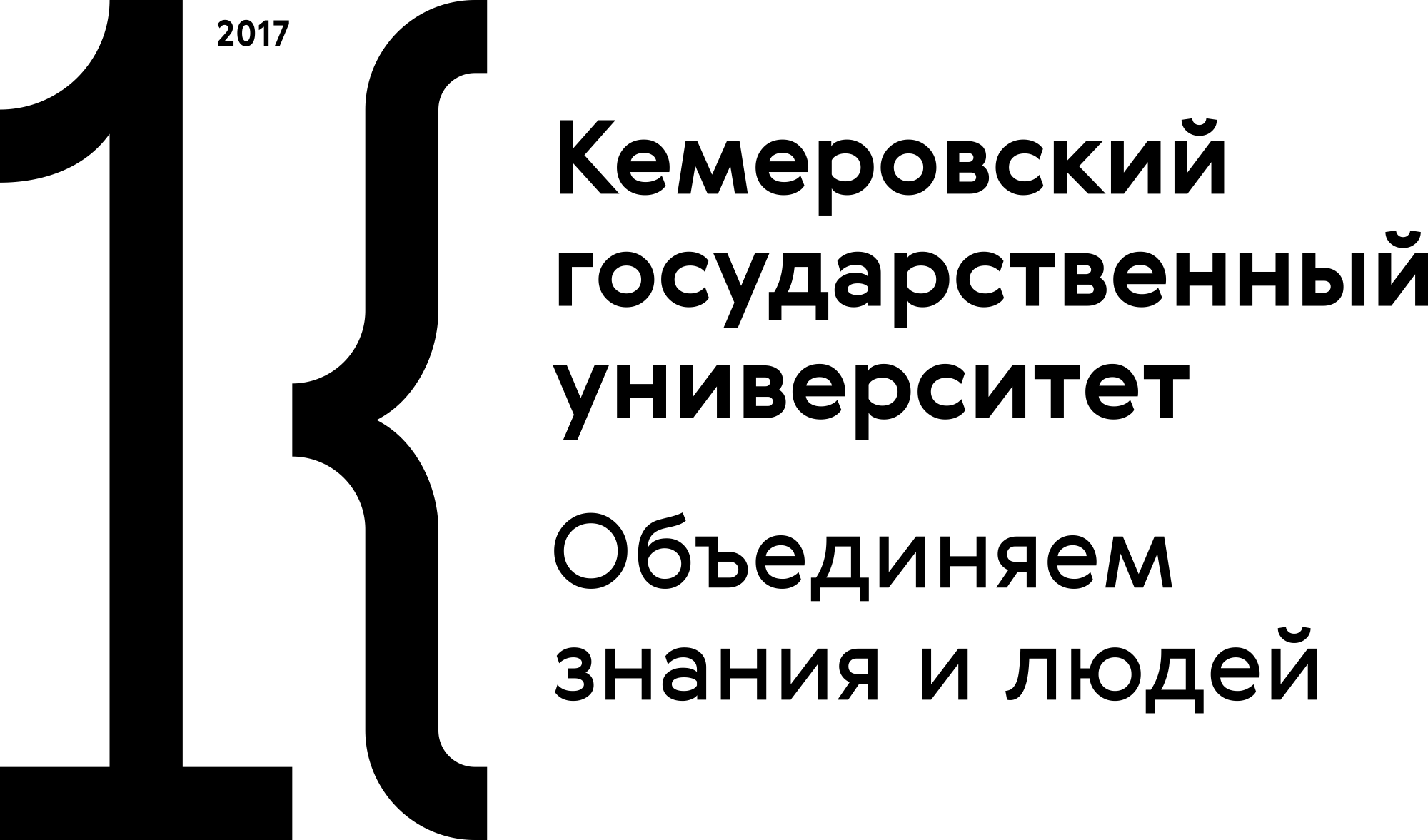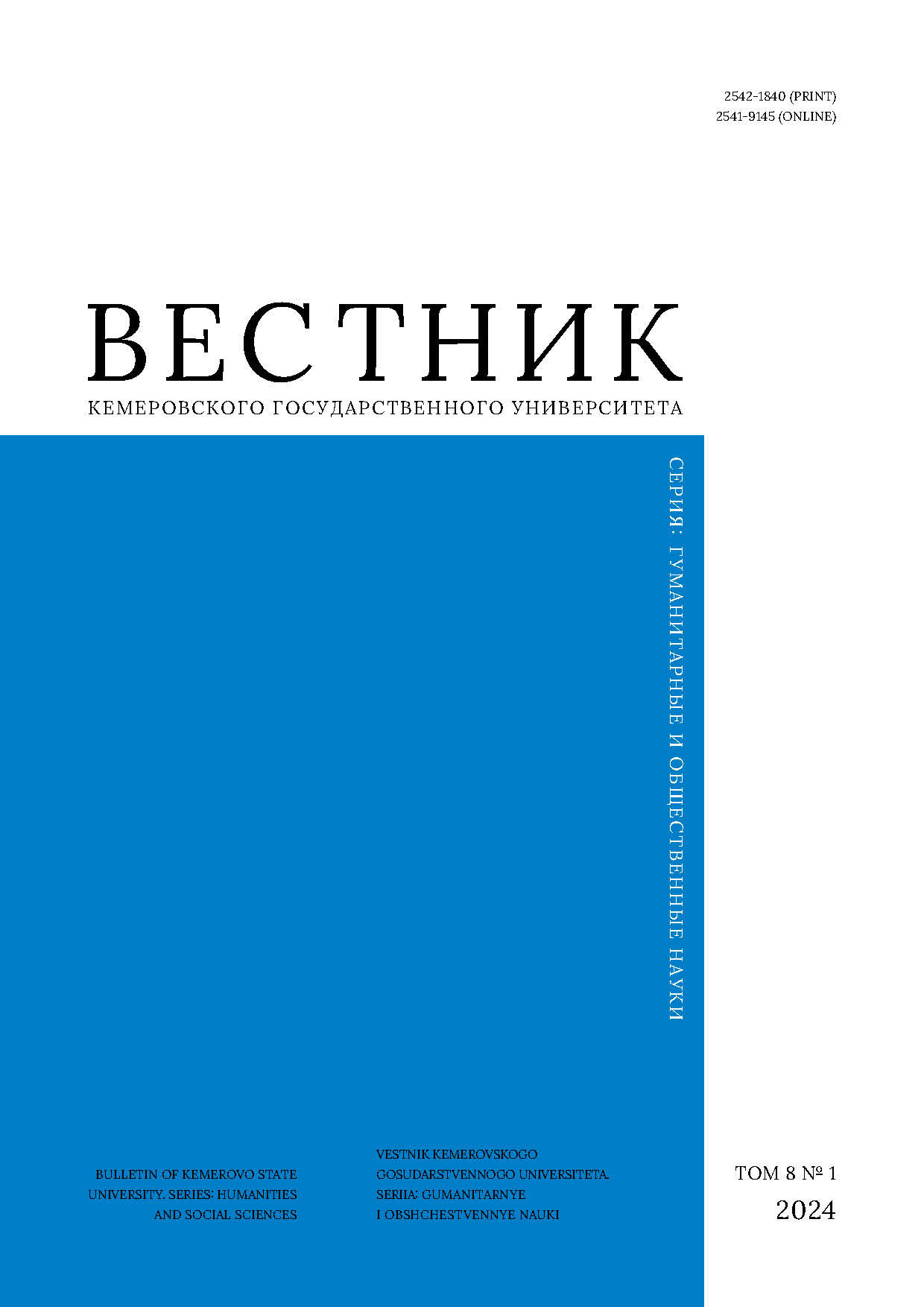Krasnoyarsk, Russian Federation
Krasnoyarsk, Russian Federation
Versatile young specialists are currently in great demand. To be a high-achiever, a successful professional needs the so-called supra-professional skills, which are responsible for personal development. To manage their own study, work, and life, university students require good self-management skills, e.g., setting goals, meeting deadlines, scheduling, road mapping, self-education, reflection, self-correction, etc. Self-management is an object of personal education and an important element of personal development in university environment. This article describes the essence and content of self-management as a competence acquired at university. A review of scientific literature made it possible to prove the relevance of self-management as part of university education. Self-management appeared to have four components, i.e., 1) motivation and target, 2) cognition, 3) activity, 4) reflection and evaluation, while its structure consisted of three development levels, i.e., initial, basic, and advanced.
competence, self-management competence, structure of self-management competency, self-management skills in university students, self-management, personal management
1. Andreev V. I. Self-development in managers. Moscow: Narodnoe sobranie, 1995, 160. (In Russ.)
2. Buzni A. N. The individual cognitive control of themselves is the main function of self-management. Ekonomika i Sovremennyi menedzhment: teoriia, metodologiia, praktika, 2018, 72-85. (In Russ.) https://elibrary.ru/nueqzv
3. Woodkok M., Francis D. The manager unblocked. Moscow: Inity-Dana, 1999, 314. (In Russ.)
4. Drucker P. F. Management challenges in the XXI century. Moscow: Viliams, 2004, 272. (In Russ.) https://elibrary.ru/qrykmf
5. Seiwert L. Your time is in your hands: tips for business people on how to use working time effectively. Moscow: INFRA-M, 1995, 230. (In Russ.)
6. Spivak V. A. Self-management as a type of management - area of research. Leadership and Management, 2017, 4(4): 153-167. (In Russ.) https://doi.org/10.18334/lim.4.4.38351 EDN: https://elibrary.ru/YKZIGJ
7. Karpichev V. Self-management: Introduction to the problem. Problemy teorii i praktiki upravleniia, 1994, (3): 103-106. (In Russ.)
8. Khrolenko A. T. Self-management. Moscow: Economika, 1996, 139. (In Russ.) https://elibrary.ru/sqfnpg
9. Bischof A., Bischof K. Effective and efficient self-management. Moscow: Omega-L, 2006, 127. (In Russ.)
10. Degterev V. A. Self-management as a key competence of developing student’s personality. Pedagogical Education in Russia, 2015, (3): 64-70. (In Russ.) https://elibrary.ru/twfijv
11. Isachenko I. I. Basics of self-management. Moscow: INFRA-M, 2012, 312. (In Russ.) https://elibrary.ru/qyeuwd
12. Kosinskaya E. A. Forming in students the self-management skills. Scientific Bulletin of Crimea, 2017, (2): 1-8. (In Russ.) https://elibrary.ru/yrxdex
13. Simonova A. A. Self-management in teachers: essence, content, and technology. Ekaterinburg: USPU, 2008, 136. (In Russ.) https://elibrary.ru/pybvax
14. Knisarina M. M., Syzdykbayeva A. D., Bekeshova G. U., Netalina G. K., Adanov K. B. Self-management in university students. West Kazakhstan Medical Journal, 2018, (3): 71-77. (In Russ.) https://elibrary.ru/yobiix
15. Murtuzalieva M. M. Self-management in university students. Vestnik nauki, 2020, 2(5): 38-40. (In Russ.) https://elibrary.ru/vtptuc
16. Khutorskoy A. V. Key competencies: Design technologies. Narodnoe obrazovanie, 2003, (5): 55-61. (In Russ.) https://elibrary.ru/sgukwn
17. Osipova S. I., Ryabov O. N. Reasoning pedagogical conditions of the formation of design-implement competence of bachel or engineers based on cdio ideas. Modern high technologies, 2016, (10-1): 181-184. (In Russ.) https://elibrary.ru/wwuuhd
18. Holopova L. A., Rusalenko D. A., Petrov V. P. Management and its variations: general and private. Koncept, 2014, (S9): 26-30. (In Russ.) https://elibrary.ru/smzerd
19. Skopina I. V., Romanova T. Management: concept and definitions in Russia and abroad. Upravlenie ekonomicheskimi sistemami: elektronnyi nauchnyi zhurnal, 2007, (4): 35-39. (In Russ.) https://elibrary.ru/kztnij
20. Thiétart R. A. Management. St. Petersburg: Neva, 2003, 94. (In Russ.) https://elibrary.ru/qqrrxp
21. Orlov A. I. Management. Moscow: Izumrud, 2003, 298. (In Russ.) https://elibrary.ru/wonloz
22. Robbins S., Coulter M. Management. Moscow: Viliams, 2002, 880. (In Russ.)
23. Schwalbe B., Schwalbe X. Personality, career, and success. Moscow: Progress, 2005, 240. (In Russ.)
24. Nozdrenko E. A. Selfmanagement in students training organization. Modern problems of science and education, 2006, (1): 81-82. (In Russ.) https://elibrary.ru/iiwulp
25. Krikun O. A. Self-management. Kharkiv: KhNU named after V. N. Karazin, 2014, 344. (In Russ.)
26. Maidanova T. V. Self-management as a condition of self-realization of students. Pedagogical Education in Russia, 2013, (2): 27-30. (In Russ.) https://elibrary.ru/pzkuqx
27. Gamzaeva M. V. The essence and content of teaching self-management. Sibirskii pedagogicheskii zhurnal, 2011, (1): 242-248. (In Russ.) https://elibrary.ru/pdtstp
28. Kitaev A. A. Self-management as a basis for managing your own activities. In: Bondarenko E. A., Slinko D. I., Stepanov S. L. et al. Problems of development of modern entrepreneurship. Stavropol: Sekvoia, 2018, 318-322. (In Russ.) https://elibrary.ru/xpvwpb
29. Larionova I. A. Self-realization as a constituent factor of integrated professional training of specialists. Pedagogical Education in Russia, 2011, (4): 18-27. (In Russ.) https://elibrary.ru/ojdvtx
30. Kolmogorceva A. A. Personal management as self-management. Ekonomika i sotsium, 2014, (4): 485-488. (In Russ.) EDN: https://elibrary.ru/TPESZX
31. Isakova A. Yu., Lapina T. A. Self-management in organizing student learning. Youth of the XXI century: education, science, and innovation: VI ALL-Russian Student. Sci-Prac. Conf., Novosibirsk, 7-9 Dec 2022. Novosibirsk: NSPU, 2023, 16-17. (In Russ.) https://elibrary.ru/hkxkcq
32. Volkova E. V. The revival of interest in H. Werner's theory in American developmental psychology. Differential-integration theory of development, comps. Chuprikova N. I., Volkova E. V. Moscow: IaSK, 2014, book 2, 585-598. (In Russ.) https://elibrary.ru/tekwiv



















